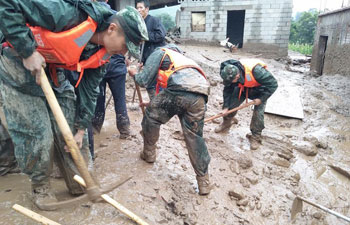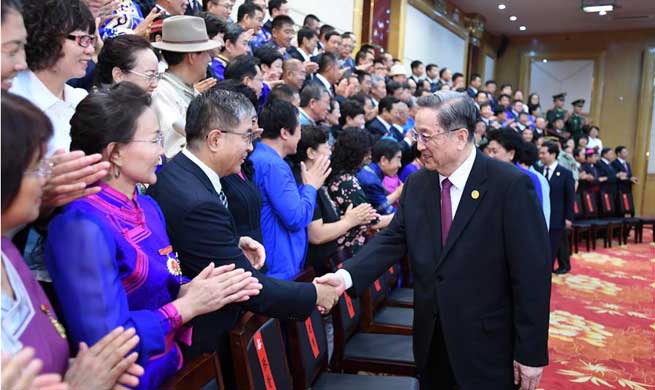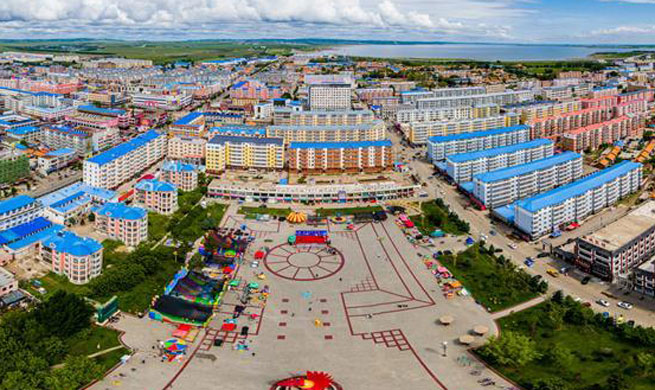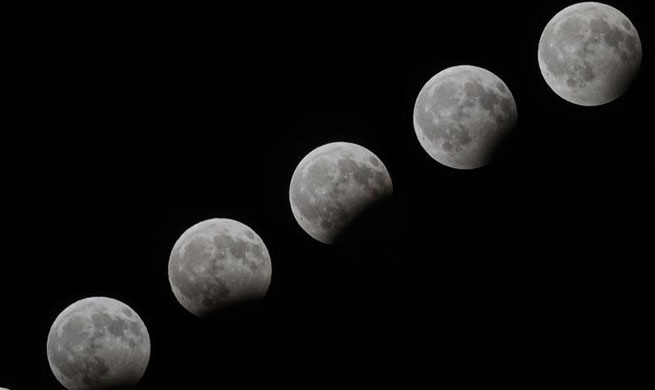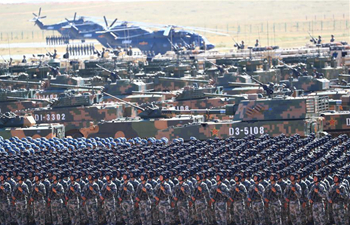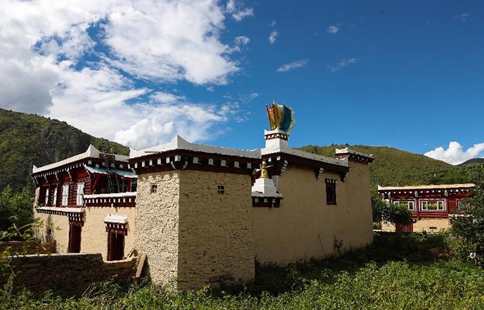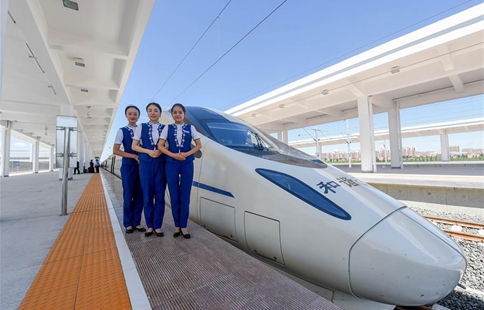TOKYO, Aug. 8 (Xinhua) -- Okinawa Deputy Governor Moritake Tomikawa on Tuesday lodged a strong protest with U.S. forces for flying an Osprey in Japan's southernmost prefecture just days after one of the accident-prone planes crashed off Australia.
Tomikawa's protest followed the central government asking the United States to stop flying Ospreys in Japan, but the U.S. response was to fly one of the controversial tilt-rotor planes from the U.S. Marine Corps Air Station Futenma on Sunday.
The plane flew from the same base as the MV-22 Osprey that crashed off Australia on Saturday, killing three U.S. Marines.
Tomikawa met the top commander of U.S. forces in Okinawa to lodge a protest and express the local residents' growing concern and anxiety over the planes' increasingly checkered safety record.
But the Okinawa deputy governor's concerns were dismissed by the top commander of U.S. forces in Okinawa, Lt. Gen. Lawrence Nicholson, who, as quoted by Tomikawa at a press briefing, said: "Ospreys are flying around the world. It is the (U.S.) military's policy."
Tomikawa said the ambivalent attitude of the U.S. military was angering.
"From the viewpoint of Okinawa, it is unbearable and I cannot help but get angry. I was not able to get any convincing answers," Tomikawa told local media.
The U.S. Naval Safety Center categorized the Osprey's crash off Australia as being "Class A."
Exasperation at the U.S. military's continued use of the Ospreys in Japan hit a fever pitch following an Osprey making an emergency landing in Okinawa in June, with local residents still in fear and incensed following the crash landing of one of the planes in waters off Nago in Okinawa, near the U.S. Marine Corps' Camp Schwab last December.
The incident, which saw five crew members airlifted to safety and then subsequently treated for injuries, involved an MV-22 Osprey making a "shallow landing" according to U.S. military accounts.
The crash marked the first major accident involving an Osprey since its deployment in Japan in 2012 and had Okinawan officials vehemently call for the planes to be withdrawn from Japan.
Prior to these accidents, Ospreys have been involved in multiple crashes around the world leading to numerous fatalities, dating back to the plane's developmental phase in 2000.







